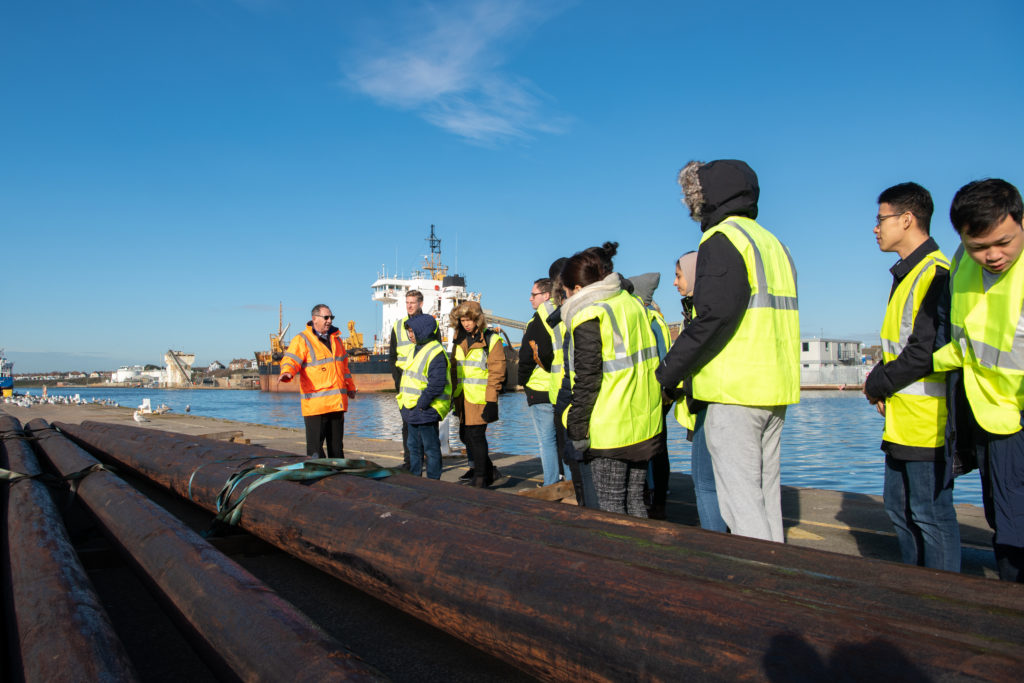
In November, students studying the MSc in Global Logistics and Supply Chain Management course had the opportunity to attend a fieldtrip to Shoreham Port. Masters student, Kathy Ng Uyen, shares her experience of the trip.
Located just west of Brighton and Hove, Shoreham Port is an important driver of the local economy. Although it is not a huge trading hub, like the container ports at Southampton, Shoreham plays a key role in the import of commodities like steel and timber, the export of grain, and the manufacture of concrete. It is also the third largest fishing port in England and Wales.

Port operations
Supported by the University of Sussex Business School and our lecturers, our master’s course enjoyed a wonderful trip there to learn about port operations and supply chain logistics. We observed numerous activities and spoke directly with port staff. They guided us around specialist activity zones such as the handling of waste timber exported to Scandinavia to create energy, and glass exported to Portugal for recycling. We also saw a steel processing zone where most of the steel beams for architecture throughout Southern England are imported and shaped ready for delivery to building sites. The Port’s operations reflect concepts that we have learnt on our course. For example, process design, layouts, capacity, and inter-modal facilities.

Shoreham Port has a long history. First developed by the Romans two thousand years ago, it still remains quite vulnerable to trade and economic changes such as Brexit. For example, in terms of the trade in fish landed at Shoreham, 65% is exported, while 80% of the fish consumed in UK is imported. The import of construction materials is also linked to the wider economy, with building work often the first to go down in a recession. To protect against this, the Port has diversified into non-port activities such as renting out office space.
The trip allowed us to gain practical experience and hear the stories and concerns of employees. Personally, it inspires me to think about how theories can be applied in real life, and reminds me of the reason why I pursued my course at Sussex – to find applicable solutions for managing supply chains.
Kathy Ng Uyen
MSc Global Logistics and Supply Chain Management


Leave a Reply